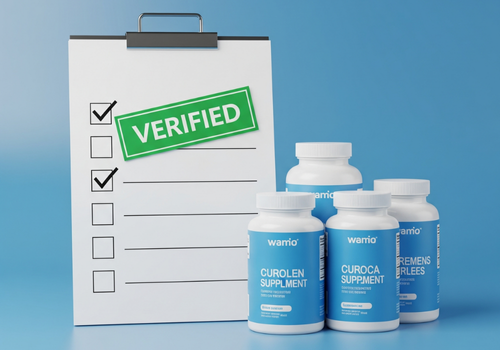Learn to Identify Safe, Effective, Suitable, and Genuine Supplements While Shopping on Amazon Marketplace
Prioritizing Safety in Every Purchase
Safety should be your top priority when selecting any supplement. Products that are truly safe often carry third-party certifications like NSF Certified, USP Verified, or Informed-Sport, which ensure that the supplements have been tested for quality, purity, and label accuracy. Authentic products will also have tamper-proof packaging, expiration dates, and batch or lot numbers. Reading the supplement label closely is key. It should clearly list all ingredients, dosages, directions for use, and allergen warnings. Additionally, it’s wise to ensure that the product is sold by the brand itself and fulfilled by Amazon, which often helps with proper storage and shipping conditions.
Understanding What Makes a Supplement Effective
Effectiveness is the next important factor, and it goes beyond what’s printed in bold on the label. A truly effective supplement is made with clinically researched ingredients—often branded or patented—and includes dosages shown to be beneficial in studies. For example, a supplement claiming to support stress might contain a patented form of Ashwagandha like KSM-66, which has clinical backing. The form of the ingredient also matters; methylated B-vitamins or chelated minerals are typically more bioavailable, meaning your body can absorb and use them more easily. It’s not about how many ingredients are included, but whether they are in the right form and amount to support your wellness goals.
Choosing Supplements That Suit Your Unique Needs
Not every supplement is suitable for every person. It’s essential to consider your individual health goals, dietary restrictions, and current medical conditions before choosing a supplement. For example, someone on a plant-based diet might look for vegan-certified supplements free from gelatin or animal-derived ingredients. Others with food sensitivities should avoid products with allergens like soy, gluten, or artificial colors. Consider lifestyle factors too—if you struggle to swallow pills, you might prefer gummies or powders. Also, your age, gender, and activity level can impact what your body truly needs, so the best supplement is the one that fits your personal health profile, not just popular trends.
Spotting Genuine and Trustworthy Brands
Genuine supplements come from brands that are transparent, consistent, and customer-focused. Trustworthy sellers will often provide detailed information on their sourcing practices, testing procedures, and manufacturing standards. Look for supplements with clear labeling, a professional presence on Amazon (like a brand storefront), and a responsive customer service team. Reviews can offer helpful insights, but go beyond the star ratings—read the actual comments to gauge real user experience. Also, cross-check the product on the brand’s official website to verify its authenticity and consistency. If a deal seems too good to be true or the packaging seems inconsistent, it may be a counterfeit or grey-market product.
Checking Seller Credibility and Fulfillment Information
A common mistake is assuming every product on Amazon is directly from the brand. In reality, many third-party sellers list supplements, and not all are trustworthy. Always check the “Sold by” and “Fulfilled by” fields. Ideally, the supplement should be sold by the official brand and fulfilled by Amazon (FBA), which ensures better handling and faster delivery. Products sold by unknown third parties may be expired, tampered with, or even counterfeit. Verified sellers are more likely to honor return policies, maintain product quality, and provide reliable customer service in case of issues.
Reading Between the Lines in Reviews and Ratings
While reviews can be useful, don’t rely solely on star ratings. Look for verified purchase reviews that provide specific feedback on the product’s effectiveness, taste, ease of use, or any side effects. Be cautious of listings with thousands of overly positive, vague reviews, especially if they repeat similar phrases. These may be fake or incentivized. Also, examine how the brand responds to negative reviews—do they offer refunds, explanations, or genuine help? This reflects their commitment to consumer satisfaction and honesty, especially in a category as personal as health supplements.
Evaluating Transparency Through the Brand’s Online Presence
Beyond Amazon, check the supplement brand’s official website to get a deeper understanding of their values, processes, and transparency. A credible brand will share details about their ingredient sourcing, third-party lab results, manufacturing standards, and even sustainability practices. Many will publish Certificates of Analysis (COAs), FAQ sections, and blog articles to educate consumers. If the website is vague, poorly designed, or missing altogether, it may indicate that the company is not prioritizing long-term trust or transparency—red flags in a market where credibility matters most.
Conclusion:
Shopping for supplements on Amazon doesn’t have to be overwhelming or risky. By understanding the key principles of safety, effectiveness, suitability, brand authenticity, seller reliability, review accuracy, and brand transparency, you can make informed decisions that support your health. Always prioritize certifications, research ingredients and dosages, match products to your personal health needs, and stay alert for red flags. A smarter supplement strategy not only protects your well-being but ensures you’re investing in products that truly deliver on their promises.

